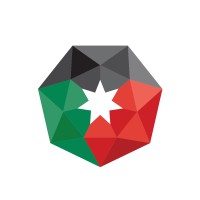- Local News
- Thu-2024-08-22 | 01:46 pm

Nayrouz News Agency :
The government has made significant progress in achieving several key targets outlined in the Economic Modernization Vision, particularly within the green economy sector.
A progress report for the first half of this year, detailing the implementation of the Economic Modernization Vision, highlights that the government has completed the construction of hangars for the dry waste re-sorting line at the Shobak solid waste transfer station.
In the area of waste recycling, the government has rehabilitated an existing warehouse at the Hazardous Waste Treatment Center in Swaqa, equipping it to safely store solar cells and used batteries from electric and hybrid vehicles. Efforts to connect electricity to this facility are currently being finalized in collaboration with the Electricity Distribution Company.
The government is also developing a reference study to establish a strategy and action plan aimed at reducing methane emissions in the waste sector by 30 percent over the next decade.
The Ministry of Environment has carried out 10 awareness programs and lectures on waste sorting and recycling at the source, targeting two government institutions and three private sector entities as part of its waste separation and collection initiatives.
The report also mentions that the government has signed an agreement with the Future Pioneers Foundation to distribute financial grants to selected local community organizations for the production of recycled materials.
The government has also completed the components of the Climate Change Adaptation Capacity Building Program in Jordan, with a focus on improving water use efficiency. This includes initiating a study to identify and assess areas most vulnerable to climate risks across the governorates of Madaba, Ma'an, Karak, and Tafilah, starting with Ma'an Governorate.
Further efforts include registering individuals interested in installing rainwater collection systems on rooftops in Qasaba Tafilah District and Busayra District within Tafilah Governorate, with implementation set to begin in the coming months.
In support of the Ministry of Water and Irrigation's efforts to enhance wastewater quality and expand agricultural options, the government has prepared a study to provide technical assistance and update the relevant policy framework.
To promote the transition to a green economy within the industrial sector, the government has implemented a program to encourage green practices in industrial facilities. This included hosting a regional forum on green financing with various stakeholders and initiating the preparation of a national roadmap for the circular economy in collaboration with partner agencies.
Moreover, an agreement was signed with the German Jordanian University and the Ministry of Environment to establish a knowledge center focused on the final use of spent batteries from the electric vehicle sector.
The first phase of the industrial sector support program has been completed through the Industry Support Fund, with the announcement of winning companies. The second phase, which involves conducting energy audit studies through the Renewable Energy and Energy Efficiency Fund, has also commenced.
Additionally, a program has been developed to enhance the skills of young engineers in the energy sector, training them to provide energy audit services in select factories.
The government, in partnership with the Aqaba Special Economic Zone Authority and the Jordan Enterprise Development Corporation, has developed joint programs to stimulate green activities in the Aqaba region and support small and medium enterprises.
A national call for innovative green solutions has been issued, targeting industrial facilities, academic experts, NGOs, and other entities with ideas to address environmental challenges in the industrial sector.
The government has also advanced the commercial sector waste recycling project, adopting a new scenario for calculating waste fees and implementing regulations for informal waste management activities. Design plans for two recycling bank sites in Wadi al-Seer and Tlaa al-Ali have been approved, with the tender process soon to be launched.
Regarding the biological-mechanical waste treatment project, the government has prepared an initial report and design for the facility. An environmental impact assessment is currently underway for the al-Sha'er and al-Ghabawi landfills. Additionally, work continues on the project planning report and the tender draft.
As part of the al-Sha'er transfer station rehabilitation project, companies are being reviewed for the second phase of the tender, with technical and financial offers being evaluated to finalize the award process.










